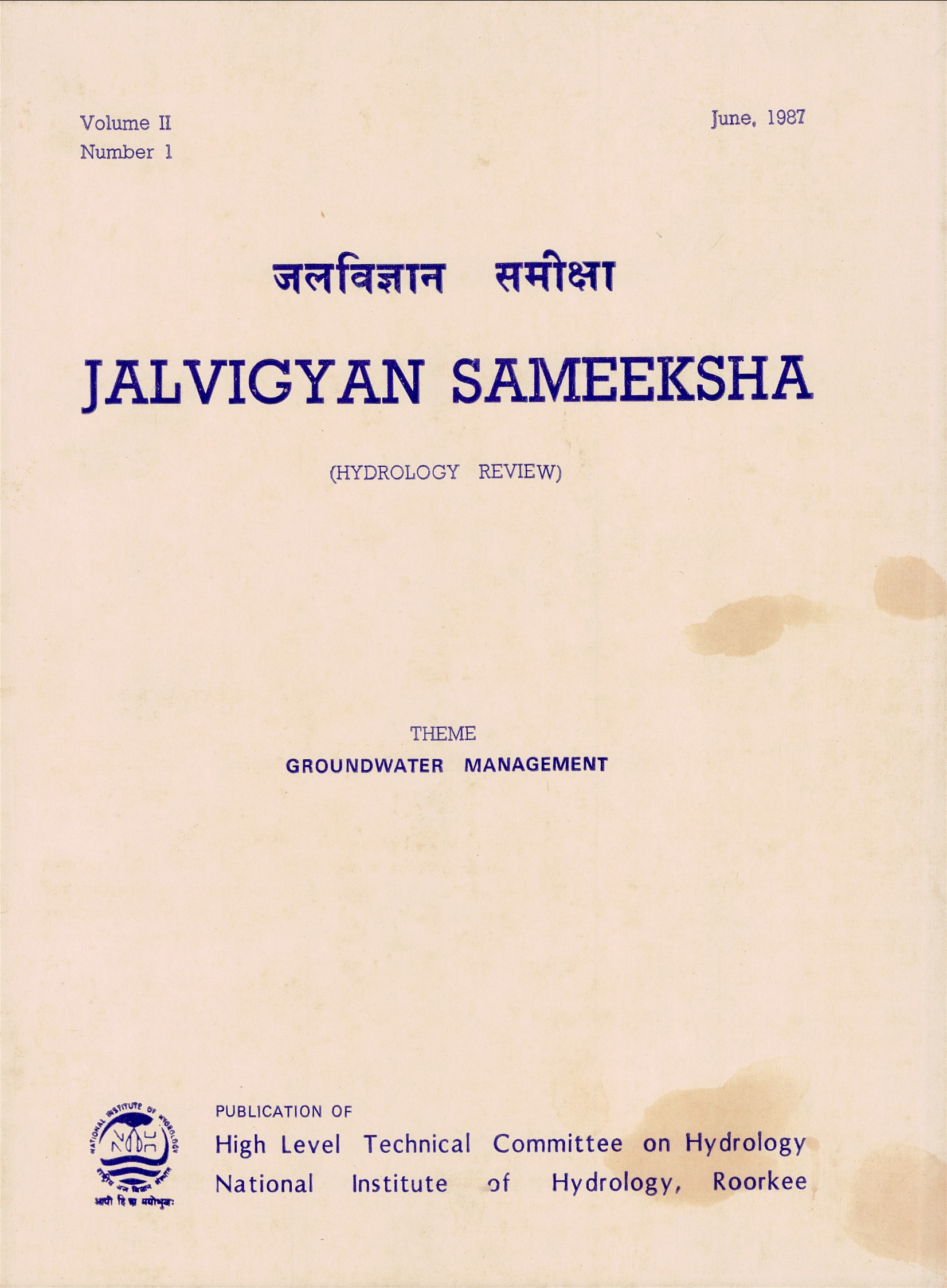- DSpace Home
- →
- Serial Publications
- →
- Jalvigyan Sameeksha
- →
- 03-Jal Vigyan Sameeksha Vol.-2(1)-June-1987
JavaScript is disabled for your browser. Some features of this site may not work without it.
03-Jal Vigyan Sameeksha Vol.-2(1)-June-1987

Recent Submissions
-
Contents (National Institute of Hydrology, 1987-06)
-
(National Institute of Hydrology, 1987-06)
-
(National Institute of Hydrology, 1987-06)
-
(National Institute of Hydrology, 1987-06)"Water is a prime natural resource, a basic human need and precious national asset". The ground water resource constitutes the most important, dependable and ubiquitous component of the total water resources. The ...
-
(National Institute of Hydrology, 1987-06)Nearly two thirds of the Indian sub-continent is occupied by the hard rocks. These hard rocks have no primary porosity and occurrence and movement of ground water is mainly confined to the weathered mantle, fractures and ...
-
(National Institute of Hydrology, 1987-06)The various aspects that make the management of coastal aquifer system more involved than that of inland aquifers are described. The structure of the salt fresh water interface, the limiting conditions of salt water ...
-
(National Institute of Hydrology, 1987-06)The drinking & domestic water supply needs of the country excluding the livestock needs work out to be 4.06 million hectare metres per year by the year 2001. The ground water plays an important role in planning and meeting ...
-
(National Institute of Hydrology, 1987-06)Seasonal increase in salinity in the wells near the sea shore is primarily due to salt water encroachment from the Arabian Sea which is hydraulically connected with the coastal aquifers running parallel to the ocean. ...
-
(National Institute of Hydrology, 1987-06)Artificial recharge of ground water is one of a management practice. It is the practice of increasing by artificial methods the amount of water that enters an aquifer. The article reviews objective and advantage of a ...
-
(National Institute of Hydrology, 1987-06)This paper markes three proposition about the perspective of ground water development in India : (a) the yet unexploited ground water potenial in India offers a major opportunity to reduce absolute and relative rural income ...
-
(National Institute of Hydrology, 1987-06)Ground water is looked upon too long a free commodity which could be abused, wasted and ignored. Recent critical trends of hydrological events made us to learn to live with limited resources following several managerial ...
-
(National Institute of Hydrology, 1987-06)In recent times the alarming proportions of water quality deterioration necessitate rapid monitoring for efficient changes to prevent further deterioration as well as cleanse our polluted water resources. The ground water ...
-
(National Institute of Hydrology, 1987-06)A solution of unsteady flow to several multiaquifer wells has been obtained using discrete coefficients. The solution is tractable for numerical computation. The solution can furnish the contributions of each of the ...
-
(National Institute of Hydrology, 1987-06)
-
(National Institute of Hydrology, 1987-06)
-
(National Institute of Hydrology, 1987-06)